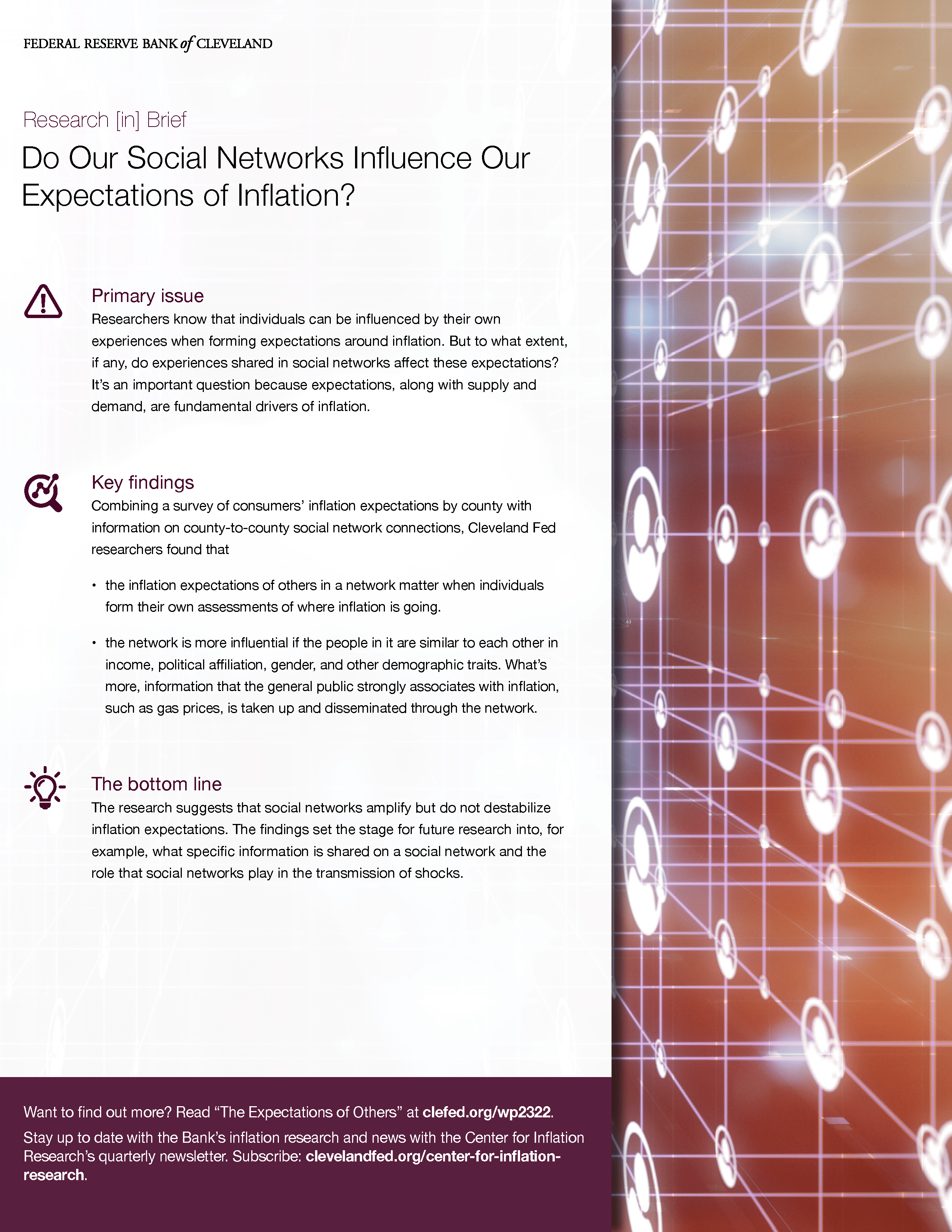- Share
Research [in] Brief: Do Our Social Networks Influence Our Expectations of Inflation?
Economists seek to understand the role of social networks in the formation of inflation expectations.
Infographic

Full text
Primary issue
Researchers know that individuals can be influenced by their own experiences when forming expectations around inflation. But to what extent, if any, do experiences shared in social networks affect these expectations? It’s an important question because expectations, along with supply and demand, are fundamental drivers of inflation.
Key findings
Combining a survey of consumers’ inflation expectations by county with information on county-to-county social network connections, Cleveland Fed researchers found that- the inflation expectations of others in a network matter when individuals form their own assessments of where inflation is going.
- the network is more influential if the people in it are similar to each other in income, political affiliation, gender, and other demographic traits. What’s more, information that the general public strongly associates with inflation, such as gas prices, is taken up and disseminated through the network.
The bottom line
The research suggests that social networks amplify but do not destabilize inflation expectations. The findings set the stage for future research into, for example, what specific information is shared on a social network and the role that social networks play for the transmission of shocks.
Want to find out more? Read “The Expectations of Others” at clefed.org/wp2322.
Stay up to date with the Bank’s inflation research and news with the Center for Inflation Research’s quarterly newsletter. Subscribe: clevelandfed.org/center-for-inflation-research.

